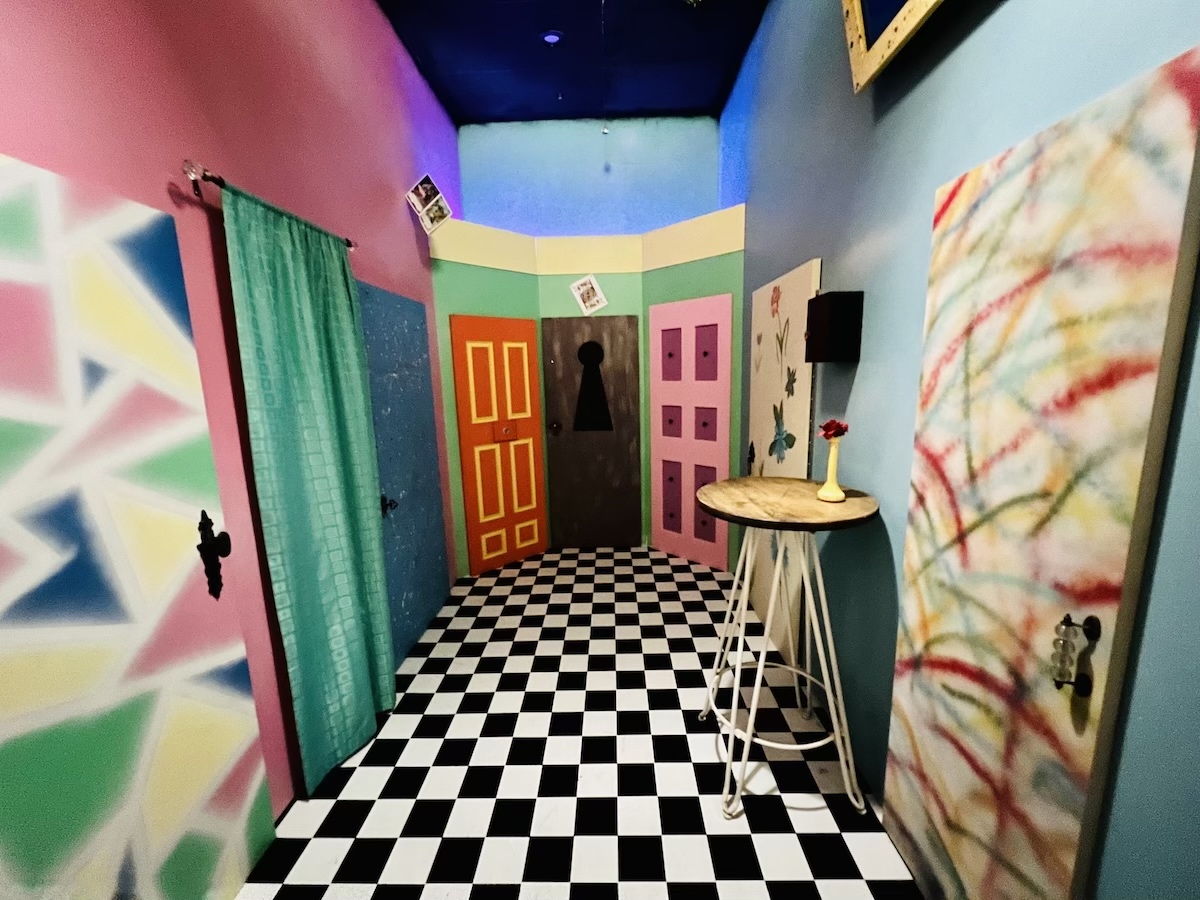Minneapolis Escape Room-- Interesting Challenge Obstacles for All Ages
Minneapolis Escape Room-- Interesting Challenge Obstacles for All Ages
Blog Article
Team Methods: Exactly How to Collaborate Effectively in an Escape Area
Teams should actively listen to each participant's understandings, designate duties that straighten with private staminas, and preserve routine check-ins to make sure focus and protect against redundancy. By cultivating an environment that values cohesion and adaptability, groups can considerably heighten their effectiveness and success rates.
Establish Clear Communication

To assist in clear interaction, it is important to mark a central factor of call for details dissemination. Brief, concentrated updates from each group participant can maintain the group educated without overwhelming them with details.

Designate Functions Strategically
While clear interaction sets the structure for effective teamwork, appointing duties tactically ensures that each staff member's staminas are utilized properly. In a getaway area scenario, the time-sensitive and complicated nature of obstacles requires a well-organized approach to job delegation. By recognizing and leveraging specific proficiencies, teams can maximize their analytic capabilities and boost overall efficiency.
First, evaluate the special skills and characteristics of each participant. A person with an eager eye for detail may stand out in finding surprise things, while a logical thinker might be much better suited to addressing problems. It's similarly vital to have a leader that can manage development, manage the timeline, and make definitive calls when necessary. This duty frequently requires strong business and interpersonal skills.
2nd, guarantee that functions are flexible and adaptable. As new challenges arise, the group needs to be able to pivot, reapportioning jobs as called for. This versatility aids keep momentum and prevents traffic jams that could happen because of rigid function assignments.
Eventually, a critical technique to duty project not only makes best use of the toughness of each team member however additionally fosters a cohesive environment, driving the group towards a successful retreat.
Use Diverse Abilities
Recognizing and utilizing the varied abilities within your team can considerably elevate your performance in a getaway area. Each group member brings distinct strengths to the table, and properly leveraging these abilities can quicken analytic and boost overall performance. A team participant with solid analytical skills could stand out at decoding intricate codes or patterns, while an additional with eager observational abilities may quickly detect covert ideas that others may forget.
Effective communication is key to using these varied skills. Urge staff member go to my blog to articulate their insights and concepts without delay, guaranteeing that all prospective solutions are considered. This inclusive strategy fosters a dynamic environment where creativity and crucial reasoning can grow. Furthermore, designating jobs that align with each participant's toughness can avoid traffic jams and make certain that progression is continuous.
In addition, variety in abilities typically equates to diversity in thinking styles, which is indispensable in a retreat area setup. While some challenges may call for rational reasoning and precision, others could take advantage of imaginative and lateral reasoning. By acknowledging and leveraging this variety, teams can address a more comprehensive series of difficulties better, thus increasing their opportunities of an effective escape.
Manage Time Effectively

First, assign first mins for a fast study of the room. Identify visible problems and divide tasks based best escape room on employee' strengths, making sure that nobody is idle. Establish interior time checkpoints to evaluate progress periodically; for instance, purpose to have half the puzzles addressed by the mid-point of the game. This technique can assist maintain the team focused and prevent time from sliding away unnoticed.
Furthermore, stay clear of one-track mind. If a puzzle is taking also long, turn team members or go on to one more obstacle, returning later with fresh perspectives. Interaction is critical-- maintain every person upgraded on fixed problems and staying jobs to avoid redundant initiatives.
Finally, use any type of hints or ideas moderately however tactically - best escape room. Recognizing when to request assistance can conserve beneficial time. By sticking to these time administration concepts, groups can significantly boost their opportunities of an effective and enjoyable escape space experience
Debrief and Mirror
Reflection is a necessary element of team advancement and enhancement in the context of escape areas. Once the challenge is completed, whether effectively or otherwise, it is critical for the team to participate in a structured debriefing session. This procedure enables team members to evaluate their efficiency, determine strengths, and determine locations for renovation.
Start the debrief by discussing what worked out. Highlight specific instances of reliable communication, analytical, and collaboration. Identifying these positive behaviors reinforces them and encourages their repeating in future challenges.
Discuss moments of complication, miscommunication, or ineffective strategies. Encourage an open and constructive discussion where team members can share their perspectives without concern of criticism.
Verdict
In final thought, effective collaboration in a retreat area is based upon clear communication, critical duty tasks, the reliable use of varied skills, and skilled time management. By creating a cohesive and adaptive team atmosphere, the likelihood of effectively solving puzzles and accomplishing the purpose of leaving the space is YOURURL.com substantially improved.
Report this page